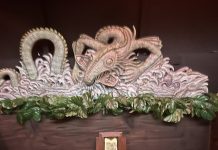Modern life runs on instant communication through handheld portals to the world of knowledge and access to anyone, at any time, from anywhere, through text messages, calls, and video chats. That’s all fine and dandy when everyone has cell service or access to the Internet. Before all that technology, there was shortwave radio that could reach the far edges of the globe. And it’s still around, used by emergency management agencies, broadcasters and radio enthusiasts for all sorts of reasons.
The History of the Radio Club of Tacoma
One of the oldest radio clubs in the nation also just happens to be located in Puget Sound.
The Radio Club of Tacoma was founded by a gathering of high schoolers way back in 1916 as a way to popularize and dabble in the emerging technology of wireless communications. Times have changed, but the club has operated much as it always. The club even stayed active during World War II, when the Federal Communication Commission prohibited amateur radio broadcasts to thwart espionage. One fact that makes the Tacoma club more interesting is that it has its own clubhouse, a two-story house in Tacoma that it bought in 1958 to hold meetings, store radio equipment, and maintain an 80-foot antenna.

The club’s upper floor houses the W7OS Antique Radio Museum, which is open on Saturdays and displays antique transmitters and receivers that span the 1940s, 1950s, and 1960s and are still used from time to time to communicate with ham radio operators around the world, often using Morse Code. The museum’s name, by the way, comes from the call sign of one of the club’s founding members, Clifford Spike. A call sign is a unique set of letters and numbers that identifies ham radio operators and their locations.
Radio Club of Tacoma Meetings
Alongside radio equipment, club meetings involve socializing about ham radio tricks and methods, sharing ideas, reviewing the latest gizmo or gadget, and organizing events, such as the international field day, where 35,000 ham operators around the world gather in groups to test their skills. Another event is the club’s Straight Key Night on December 31, which reaches other radio hobbyists on distant shores to mark the new year.

“Many people who join the club have recently obtained their license. In fact, we offer a free promotional membership to hams who both take our class and pass the license exam at our facility. Others join after moving to the area or after having been a Ham for some time without being a member of a club,” said Randy Myers, website administrator for Radio Club of Tacoma. “We are unusual among ham radio clubs in that we have actual real estate, a permanent place to gather and set up equipment, so the club attracts some hams who don’t own or can’t set up a station of their own due to living conditions. And as is true of many clubs, some folks just enjoy participating in team efforts that involve some technical component, public service or are purely social.”

Ham Radio Operators in Tacoma
Members gravitate to ham radios for many different reasons. Some like using the old-school technology. Others appreciate the modern advances the digital world brings to an otherwise analog hobby. Still, others enjoy the worldly social aspects of reaching people in other countries in a radio version of a party line. Others see it as a useful skill to have in case of natural disasters that could disrupt modern communications or for backcountry camping when cellular signals aren’t available.
“Of course, communication anywhere in the world is now trivially simple via the Internet and mobile phones, so ham radio does not automatically benefit from an element of fascination that it once had,” Meyer said. “Sometimes, a group of ham operators will travel to a part of the world where there are few or no native ham radio operators and will ‘activate’ that entity,” he said. “This is known as a ‘DX-pedition’ (DX being a ham radio abbreviation for distant), and such excursions to rare entities elicit a blizzard of attempts to make contact from the rest of the world –very exciting for the DX-peditioners.”

Some amateur radio operators simply like the various games that have developed, such as radio “scavenger hunts” of collecting contacts from different states, countries, islands, mountain peaks or wherever other radio operators transmit.
“There is so much to this that you could get stuck in just one aspect of it and spend your entire life,” said club president Mike Mikuchonis.


































